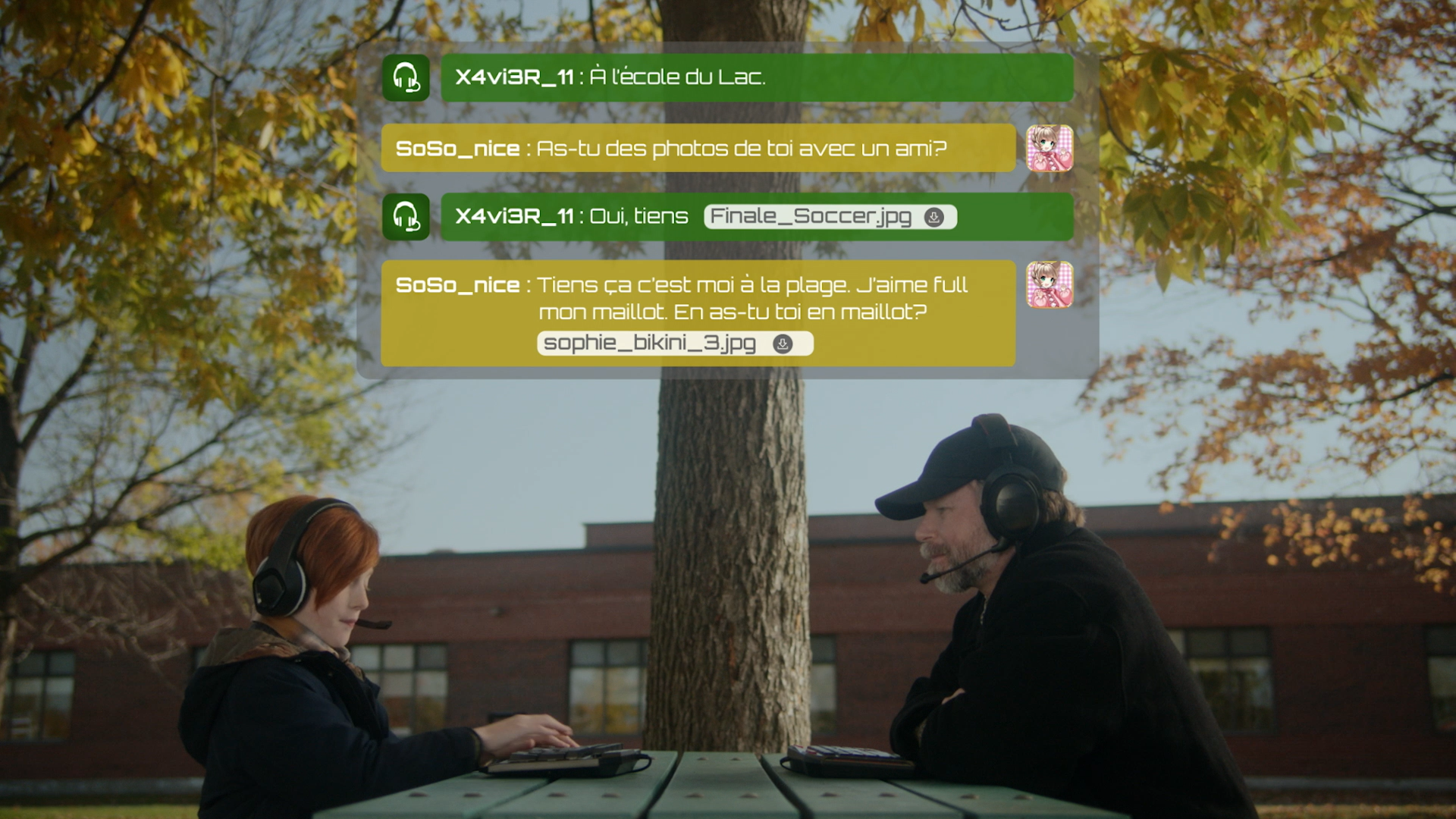This video and these parent-teen discussion guides are designed to help you talk with your adolescent about their technology habits and about preventing online sexual violence.



This video and these parent-teen discussion guides are designed to help you talk with your adolescent about their technology habits and about preventing online sexual violence.



A child is talking online with a person named Sophie, who is asking him all sorts of questions about his personal life. As we watch the video, we understand that Sophie is actually an adult man, but the child in the story doesn’t know that.




– Social media networks
– Chat rooms
– Chats included in multiplayer video games

– Your personal information: full name, birth date, age;
– Your contact information: address, phone number;
– Your geolocation;
– Your “handles” or full name on other apps;
– Your passwords;
– Personal photos or photos of other people without their consent.

– You don’t know all the people you spend time with online and you can never be sure of their intentions or their real identities.
– People with bad intentions can use your
information to commit a crime, such as:
– Theft;
– Fraud;
– Identity theft;
– Child luring;
– Sexual assault;
– Sextortion;
– Online harassment.
– The person asks you things that seem bizarre or
make you uncomfortable.
-The person uses manipulative techniques (offering gifts, confiding in you, etc.) to convince you to give them what they want.
– Sophie/the man asks for a photo of Xavier in a bathing suit, which makes him uncomfortable.
– Sophie/the man shares personal information first so that Xavier feels obliged to respond. He feels like he owes something.
– Sophie/the man compliments Xavier to flatter him and make him feel liked and admired.
– Sophie/the man offers a bonus gift in the game to create a connection with Xavier.
– Sophie/the man finds points in common with Xavier to get closer to him.
– End the conversation.
– Report the person to the app or game.
– Block the person.
– Talk with a trusted adult about what’s happening, what you’re worried about or what you’re questioning.
A trusted adult is:
– An adult you feel good with;
– An adult who helps you when you need it and who respects your boundaries;
– An adult who listens to you and is sensitive to your feelings.
As a parent, you’re a major player in your teenager’s education, particularly when it comes to sexuality. You act as a model by conveying your values and sharing everyday life with them. By talking about these topics with your teen, you’re building a trusting relationship and a climate of openness when it comes to sexuality, which helps protect them from sexual violence.


Taking the time to talk with your teenager about subjects that concern them is an effective way to position yourself as a trusted adult they can turn to in case of distress or other need.
Do you have questions, an emergency situation, or just need to talk?
La Ligne Parent is a 24/7 professional help line that’s free for parents: 1 800 361-5085 (in French).
When risks related to technology use are brought up, many teenagers believe that this phenomenon does not apply to them. This article details how you can help improve your teen’s safety skills, specifically by bringing them to recognize manipulation tactics
Getting teens to stop playing in their online world is a source of conflict within many families. Here's a few tips to avoid conflicts.
Video games are popular among young people. Not only do they spend hours playing, many teens watch videos of their favourite players on platforms such as Twitch or YouTube.